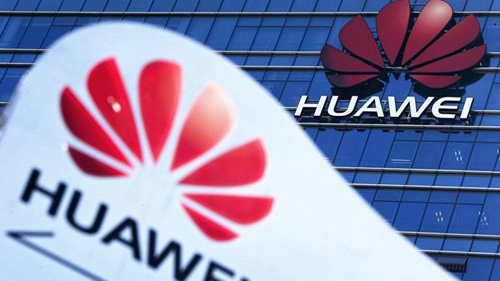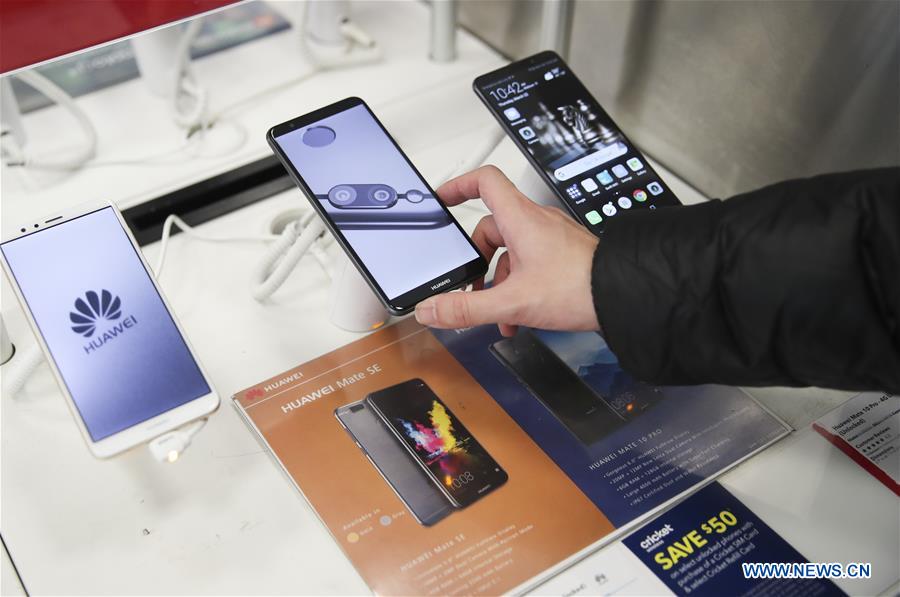
The logo of China's tech giant Huawei. /Xinhua
The logo of China's tech giant Huawei. /Xinhua
Editor's Note: Seymur Mammadov is the director of the international expert club EurAsiaAz and editor-in-chief of Azerbaijan news agency Vzglyad.az. The article reflects the author's opinions, and not necessarily the views of CGTN.
The United States is rolling its sleeves to mount another attack on China, specifically its telecom giant Huawei Technologies Co.
The U.S. Department of Commerce announced new measures to limit the Chinese company's access to key components needed for its work. The new rules, introduced by the Ministry of Trade, block the Chinese company from purchasing semiconductor equipment manufactured using American technologies. Back in May, the Americans banned Huawei from using American technologies in their chips.
Moreover, the U.S. Department of Commerce has added 38 Huawei-affiliated organizations operating in 21 countries to the blacklist. Companies are prohibited from exporting American technologies to these organizations without the required license. According to U.S. Secretary of Commerce Wilbur Ross, despite the fact that access to American technologies for Huawei was previously limited, the Chinese company and its affiliates tried to get to American technologies through third parties, so much so that they almost "undermined the national security of the United States and foreign policy interests."
The spy mania of the current U.S. administration, which is most likely caused by an elementary desire to suppress its main economic competitor, is forcing the White House to take more and more new steps, not being satisfied with what has already been done. "We do not want Huawei equipment in the U.S., because they are spying on us," said U.S. President Donald Trump.
Despite the pressure, bans and sanctions, Huawei stands fairly firm on its feet. At the end of the second quarter of this year, Huawei became the leader in smartphone sales, leaving a top manufacturer like Samsung behind. The Chinese have shipped 55.8 million smartphones, the Koreans 53.7 million. And this is despite the severe pressure. This fact is troubling Washington, which is not being able to get a hold on the Chinese company. But it is not giving up – it is tossing and turning, trying to find more ways to entrap.

Huawei smartphones at a Best Buy store in New York, U.S., March 22, 2018. /Xinhua
Huawei smartphones at a Best Buy store in New York, U.S., March 22, 2018. /Xinhua
The war between the United States and China has been going on for the second year now. Washington is taking the toughest measures to weaken its rival economically. But the Chinese economy and businesses rely on the resourcefulness and talent of the Chinese people. Contrary to Trump's decisions, China is only getting stronger. The situation with Huawei is a clear confirmation of this.
Earlier, by the order of Trump, Google, Intel, Broadcom, YouTube and others stopped working with Huawei. But the Chinese company found a way out. When Google removed all Huawei devices from its website, the Chinese company created an alternative called Huawei Mobile Services (HMS). An alternative for YouTube is also there: the French video service Dailymotion. The Chinese side responds to attacks with new developments or creative solutions. And the United States keeps on finding itself in a rather difficult situation, where its dignity is threatened. To maintain its apparent stature, Washington has to expand the list of bans and involve more countries in the process, hoping that China will not be able to fight back on so many fronts at the same time.
Now the U.S. is taking away American semiconductor technology from Huawei. If the Chinese company has to abandon the use of these technologies, there is no doubt that after a while it will come up with its own new developments. The company has already proved that it is able to get out of any situation and does not intend to give up positions. It has strong financial, intellectual and technological capabilities for this.
Why, then, don't the Chinese completely abandon American technology? Because the philosophy of the Chinese economy is not to completely cut ties and burn bridges. The United States is one of China's largest partners. However, it is true, as practice shows, that Washington is an unreliable partner, always ready to stab you in the back. Americans are willing to be honest only when dealing with weak partners. China, on the other hand, is an economically strong country, seriously treading on the heels of American economic hegemony. In such a situation, Washington is unable to play fair.
Honest cooperation between the United States and China could be beneficial to both countries. If Washington was a little less arrogant and more pragmatic, it could leverage the Chinese economy to its own benefit. However, sadly, that is not the case. Having entered the warpath, Trump does not realize that by trying to destroy the Chinese economy he is destroying the economies of both the United States and Europe, thereby contributing to the global crisis and the destruction of established economic ties.
You don't have to worry about China. Huawei will find a way out of this situation. May be it will consider a complete transition. And perhaps the time has come for this.
(If you want to contribute and have specific expertise, contact us at opinions@cgtn.com.)